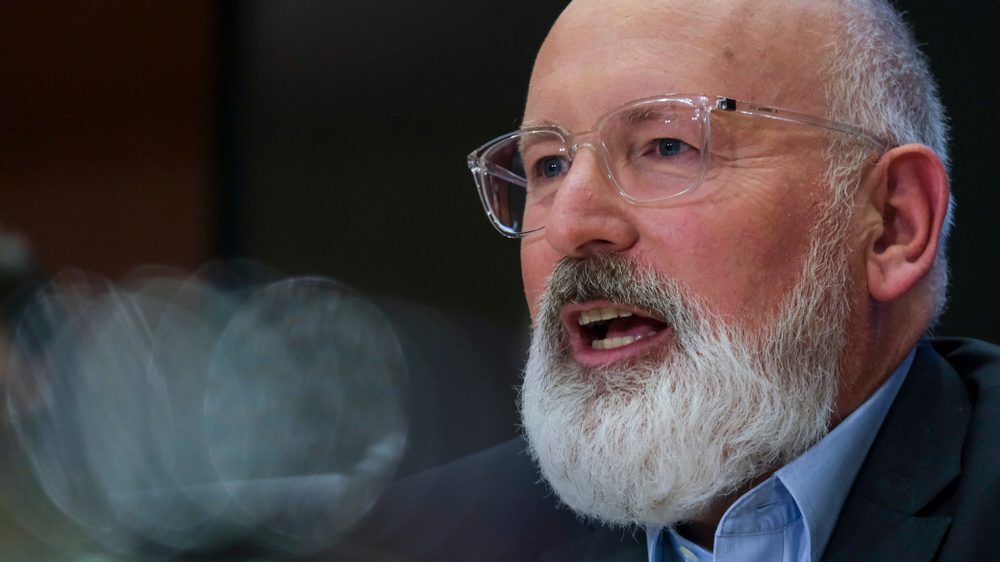
Photo: Alexandros Michailidis / Shutterstock.com
A little over three months before Dutch citizens head to ballot boxes for the national parliament snap elections, the latest polling data has revealed that the left-liberal globalist alliance—comprising the Labor Party (PvdA) and the GroenLinks (Greens)—has taken a comfortable lead, while the country’s Right remains exceedingly divided.
Shortly after Mark Rutte, the longest-serving Prime Minister of the Netherlands, stepped down from office in early July following disagreements in the four-party coalition over migration, the Labor Party and GroenLinks voted to take part in November’s election as a single faction with a joint manifesto.
According to Europe Elects’ latest polling analysis, the PvdA-GroenLinks alliance sits in first place with 18.% of the national vote, some 7.6% more than the amount collectively garnered by the two parties in the national parliamentary election in 2021.
Politicians from both parties have thrown their support behind Frans Timmermans, the European commissioner in charge of climate and environment policies who previously served as Rutte’s foreign minister. Timmermans, who also serves as the European Commission vice president, announced in July he would leave his post in Brussels to run for Dutch prime minister.
Leaders from the two parties, in a post to X, formerly known as Twitter, praised Timmermans as a leader “who gives direction to a green and social course” for the Netherlands, and as someone “who knows how to bridge differences, who wants to restore confidence, and who has a clear vision for the future of our country.”
Behind the left-globalist alliance is former Prime Minister Mark Rutte’s liberal VVD (Renew), which at the moment is polling around 15.6%, down 6.3% from the previous election. Meanwhile, in third place is BoerBurgerBeweging (BBB), or the FarmerCitizenMovement, at 14.9%. The party, described by some as populist, stormed onto the political scene in the 2021 Dutch general elections on a platform that promised to counter nitrogen emission legislation and address the concerns of farmers and everyday citizens.
Europe Elects Netherlands correspondent Nassreddin Taibi told the press: “A coalition containing PvdA/GL with VVD or PvdA/GL with BBB is likely. PvdA/GL already governs as a two-party act in several provinces.
He added:
However, there’s a possibility of a full right-leaning government coalition too, which would contain VVD, BBB, JA21, PVV, and SGP. This coalition has a majority in recent Ipsos polls but lacks that in other polls. As of now, VVD still officially rules out a coalition with PVV. But that might change now that Rutte is going to be replaced by a new leader, Justice Minister Dilan Yesilgöz, described as more conservative than Rutte.
“Dutch polls also tend to change a lot coming closer to an election, often leading to some sort of consolidation behind bigger parties due to tactical voting,” Taibi added.
Meanwhile, on the divided right, Geert Wilders’ Party for Freedom (ID) is polling at 9.8%, about a point below the party’s result in the 2021 general elections. The national-conservative JA21 sits at 4.3%, up from 2.4% in 2021, while the anti-globalist Forum for Democracy (FvD) is set to pass the threshold to enter parliament with 3.1%.
The right-wing Belang van Nederland, which, like JA21, split from the Forum for Democracy in 2021, could win one seat for the first time. The Christian Democrats (EPP), which were a member of Rutte’s coalition, have witnessed their presumptive share of the vote plummet to just 4%, down from 9.5% in 2021. The Reform Political Party (SGP), a Calvinist political party that’s a member of the ECR grouping, has 2.2%.
The liberal D66, also a former member of Rutte’s coalition, is also expected to see its share of the vote crash to 6%, down from 15% in 2021.
